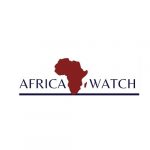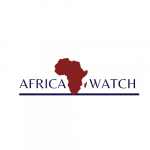A new report by Amnesty International has revealed a sharp and systematic erosion of human rights in Niger since the July 2023 coup that toppled President Mohamed Bazoum. The report accuses the military-led National Council for the Safeguard of the Homeland (CNSP) of failing to honor its initial promises to uphold the rule of law and respect fundamental freedoms.
Following its seizure of power, the CNSP suspended Niger’s constitution, pledging to safeguard civil liberties. However, Amnesty’s findings paint a vastly different picture—one of increasing repression, judicial overreach, and the shrinking of civic space.
Detentions Defying Legal Orders
Among the most troubling revelations is the continued detention of ousted President Bazoum, his wife, and several former cabinet members—despite court rulings calling for their release. Bazoum faces charges of “high treason” and has reportedly been denied access to legal representation. Journalists, civil society leaders, and political dissidents have also been targeted with arbitrary arrests and prolonged detention without fair trial guarantees.
The report highlights how military courts, operating without transparency, are being used to silence critics under broadly defined offenses such as “infringing on national defense.”
Freedom of Expression Under Siege
Press freedom in Niger has come under severe attack. Prominent journalists including Ousmane Toudou and Soumana Maiga face harsh charges, with potential sentences exceeding ten years. Activists like Moussa Tchangari have also been arrested, while numerous media houses and civil society groups—including the influential Press House—have been suspended.
The military regime has revived punitive defamation laws and is reportedly abusing Niger’s terrorism registry to strip government critics of their citizenship—tactics Amnesty condemns as clear violations of international legal norms.
A Shrinking Civic Space
Since July 2023, all political parties have been suspended, leading to a climate of fear and widespread self-censorship. Journalists and civil society actors now tread carefully, wary of reprisal. “If you criticize the government, be sure you risk being arrested,” said one civil society member interviewed by Amnesty.
This repression, Amnesty warns, risks deepening if the proposed five-year transition plan to civilian rule is not urgently revised and subject to independent oversight.
Amnesty International’s Demands
In light of these findings, Amnesty is calling for:
-
The immediate and unconditional release of all individuals arbitrarily detained.
-
Respect for judicial independence and compliance with court orders.
-
Adherence to international human rights standards, including the rights to fair trial, freedom of expression, peaceful assembly, and protection from torture.
Violation of African Charter Obligations
The actions of Niger’s military regime represent blatant breaches of the African Charter on Human and Peoples’ Rights, to which Niger is a state party. The Charter guarantees the right to liberty (Article 6), fair trial (Article 7), freedom of expression (Article 9), and freedom of association (Article 10). The detention of journalists, silencing of dissent, and disregard for judicial authority not only contravene these provisions but also undermine the collective progress of human rights on the continent.
No Official Response
Despite sharing its findings with Nigerien authorities in February 2025, Amnesty reports that the government has failed to respond. The silence, rights groups say, only reinforces concerns over the CNSP’s commitment to democratic governance and the rule of law.
Conclusion
Amnesty’s report draws a bleak picture of life under Niger’s military rule. It underscores an urgent need for regional and international actors, including the African Union, to hold the CNSP accountable and press for a return to democratic norms in line with both domestic and international legal commitments.
Without immediate reforms, Niger risks descending further into authoritarianism—threatening the rights and freedoms of its people, and weakening the protective framework established by the African Charter on Human and Peoples’ Rights.

